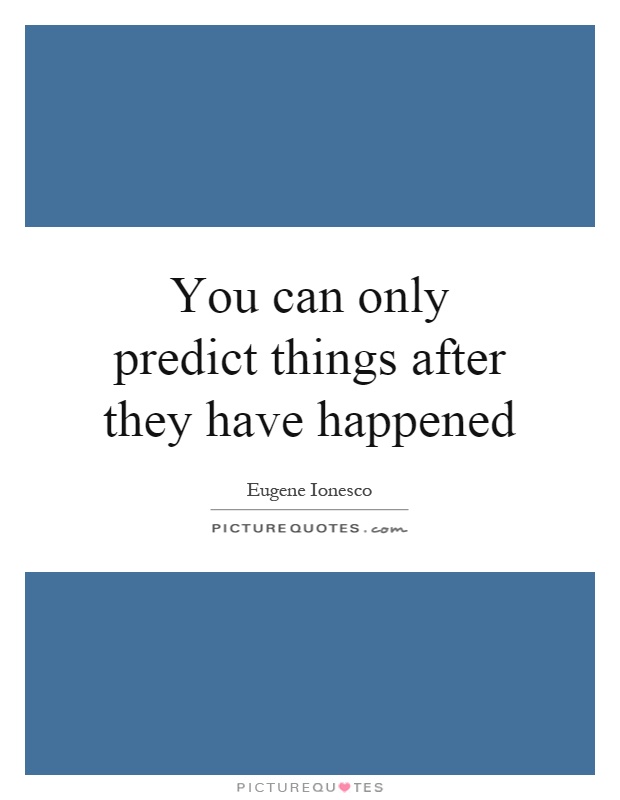You can only predict things after they have happened

You can only predict things after they have happened
Eugene Ionesco, a prominent Romanian-French playwright known for his absurdist style, often explored themes of the unpredictability and absurdity of life in his works. One of his most famous plays, "Rhinoceros," delves into the idea of conformity and the loss of individuality in society. In this context, the statement "You can only predict things after they have happened" takes on a deeper meaning.In "Rhinoceros," the residents of a small town gradually transform into rhinoceroses, symbolizing the dangers of blindly following the herd mentality and losing one's sense of self. The protagonist, Berenger, struggles to resist this transformation and hold onto his humanity in the face of overwhelming pressure to conform. The play serves as a cautionary tale about the consequences of failing to predict the destructive effects of mass hysteria and conformity until it is too late.
Ionesco's exploration of the unpredictability of human behavior and the tendency to follow the crowd resonates with the idea that true understanding and prediction can only come after events have already unfolded. In the play, the characters are unable to foresee the disastrous consequences of their actions until they are already in the midst of chaos. This mirrors the way in which we often fail to anticipate the outcomes of our decisions and actions until we are faced with the consequences.
Furthermore, Ionesco's absurdist style highlights the inherent absurdity of trying to predict the future in a world that is constantly changing and evolving. The characters in his plays often find themselves caught in surreal and nonsensical situations, emphasizing the futility of trying to make sense of a world that defies logic and reason.












 Friendship Quotes
Friendship Quotes Love Quotes
Love Quotes Life Quotes
Life Quotes Funny Quotes
Funny Quotes Motivational Quotes
Motivational Quotes Inspirational Quotes
Inspirational Quotes